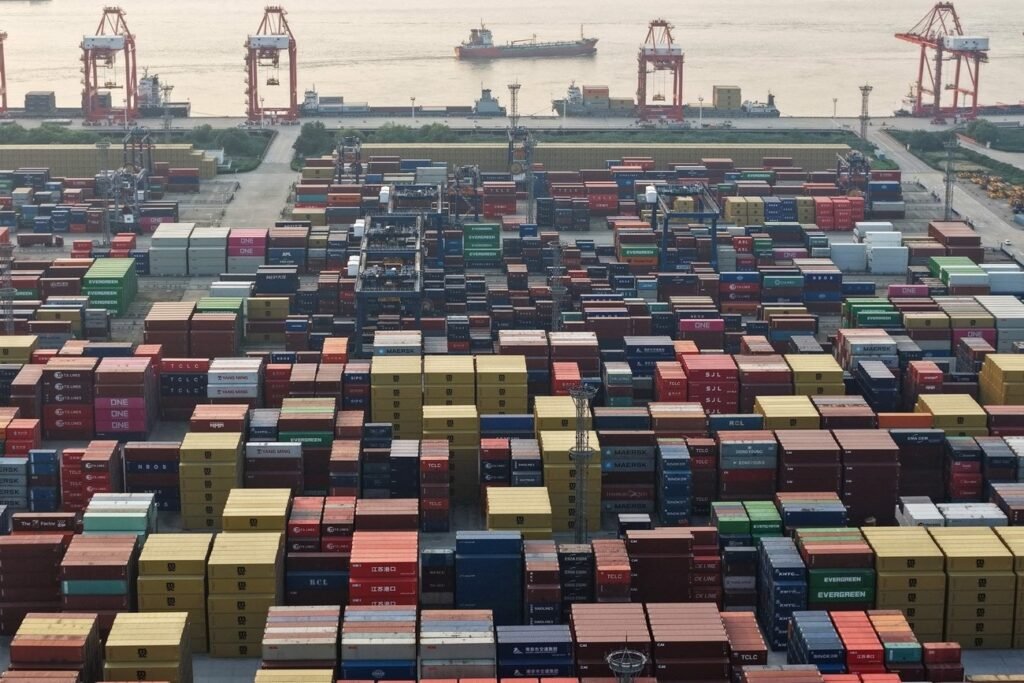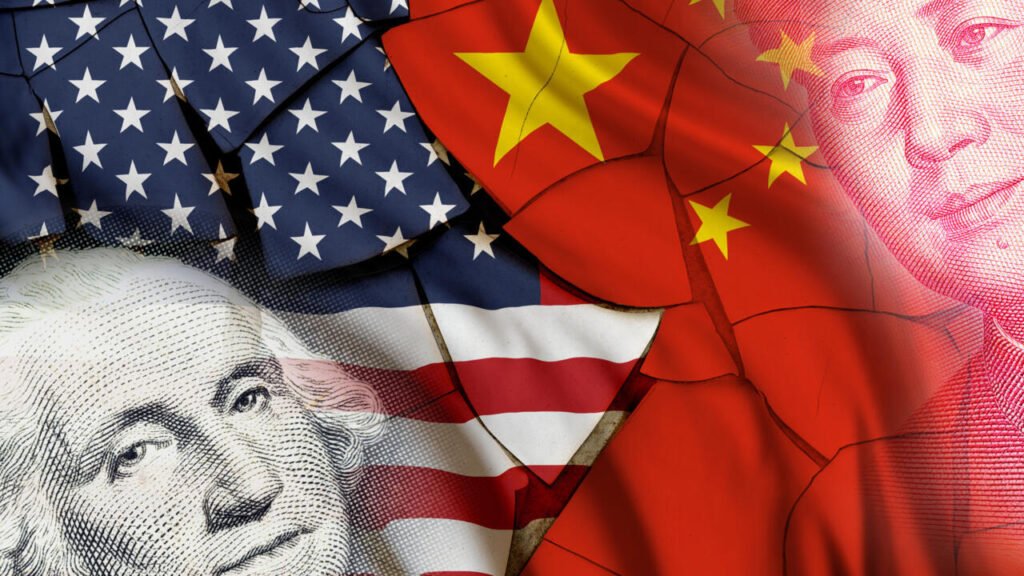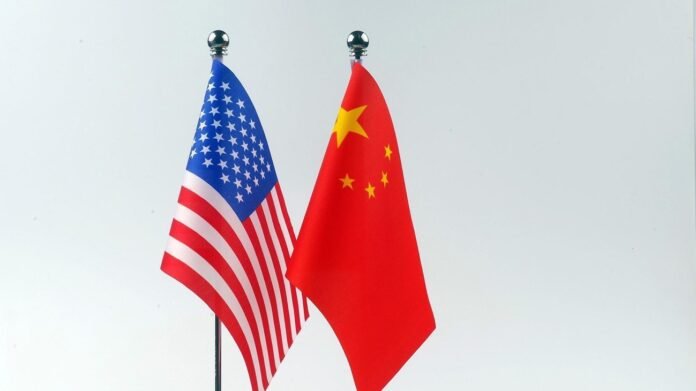STOCKHOLM, Sweden – Top U.S. and Chinese economic officials resumed talks in Stockholm on Monday in an effort to address long-standing economic disputes at the heart of a trade war between the world’s two largest economies, with the goal of extending the truce for three months and keeping sharply rising tariffs in check.
Negotiations will begin Monday afternoon local time at Rosenbad, the Swedish prime minister’s office in central Stockholm, according to a source familiar with the talks’ planning. Chinese and American national flags were raised at the building on Monday morning.
China faces an August 12 deadline to reach a permanent tariff agreement with the Trump administration, after Beijing and Washington reached preliminary agreements in May and June to end weeks of tit-for-tat tariffs and rare earth metals cuts.
Without an agreement, global supply chains could face renewed disruptions due to the return of US tariffs to triple-digit levels, which could amount to a bilateral trade embargo.
The Stockholm talks come on the heels of Trump’s largest trade deal yet with the European Union on Sunday, which includes 15% tariffs on most EU goods exports to the United States, including cars.
However, similar progress is not expected in the talks between the United States and China, but trade analysts said that another 90-day extension of the tariff and export control truce reached in mid-May is likely.
Extending this period would prevent further escalation and facilitate planning for a possible meeting between Trump and Chinese President Xi Jinping in late October.
A US Treasury Department spokesperson declined to comment on a report in the South China Morning Post, citing unnamed sources, that the two sides would refrain from imposing new tariffs or other steps that could escalate the trade war for another 90 days.
The Trump administration is preparing to impose new sector-specific tariffs that will impact China within weeks, including on semiconductors, pharmaceuticals, ship-to-shore cranes, and other products.
“We’re very close to a deal with China,” Trump told reporters Sunday before European Commission President Ursula von der Leyen reached an agreement on tariffs. “We’ve already reached a deal with China, but we’ll see how it goes.”
The Financial Times reported on Monday that the United States has suspended restrictions on technology exports to China to avoid disrupting trade talks with Beijing and support Trump’s efforts to secure a meeting with Xi this year.
The newspaper, citing current and former officials, said the Commerce Department’s Bureau of Industry and Security, which oversees export controls, has been instructed to avoid taking tough action against China.

Deeper Issues
Previous US-China trade talks in Geneva and London in May and June focused on reducing retaliatory US-China tariffs from triple-digit levels and restoring the flow of rare earth minerals that China had halted, and Nvidia (NVDA.O), the US also halted imports of artificial intelligence chips and other goods.
So far, the talks have not touched on broader economic issues. These include US complaints that China’s state-led, export-driven model floods global markets with cheap goods, and Beijing’s complaints that US export controls on technology goods for national security purposes seek to hinder Chinese growth.
“Geneva and London were really trying to get the relationship back on track so that they could, at some point, actually negotiate the issues that drove the dispute between the two countries in the first place,” said Scott Kennedy, an expert on the Chinese economy at the Center for Strategic and International Studies in Washington.
“I would be surprised if there was an early harvest on some of these things, but extending the ceasefire for another 90 days seems the most likely outcome,” Kennedy said.
US Treasury Secretary Scott Besant has already indicated an extension of the deadline, saying he wants China to rebalance its economy away from exports to more domestic consumption – a decades-long goal of US policymakers.
Analysts say that US-China negotiations are far more complex than those with other Asian countries and will take longer. China’s control of the global market for rare earth minerals and magnets, used in everything from military equipment to windshield wiper motors, has proven to be an effective means of pressuring US industries.

Trump meeting with Xi?
Against the backdrop of the talks, there is speculation about a possible meeting between Trump and Xi in late October.
Trump has said he will soon make a decision on a historic visit to China, and a renewed escalation of tariffs and export controls is likely to disrupt his planning.
Sun Qinghao, a researcher at the Center for International Security and Strategy at Tsinghua University in Beijing, said the Trump-Xi summit will provide the United States with an opportunity to reduce its 20% tariff on Chinese fentanyl-related goods. In return, he said, China may fulfill its 2020 pledge to increase purchases of American agricultural products and other goods.
“The prospects of the heads of state summit are very helpful for the negotiations because everyone wants to reach an agreement or pave the way in advance,” Sun said.
However, China is likely to request a reduction in the multi-tiered US tariffs, which stand at 55% on most goods, and further relaxation of US advanced technology export controls, according to analysts. Beijing believes such purchases will help reduce the US trade deficit with China, which reached $295.5 billion in 2024.










